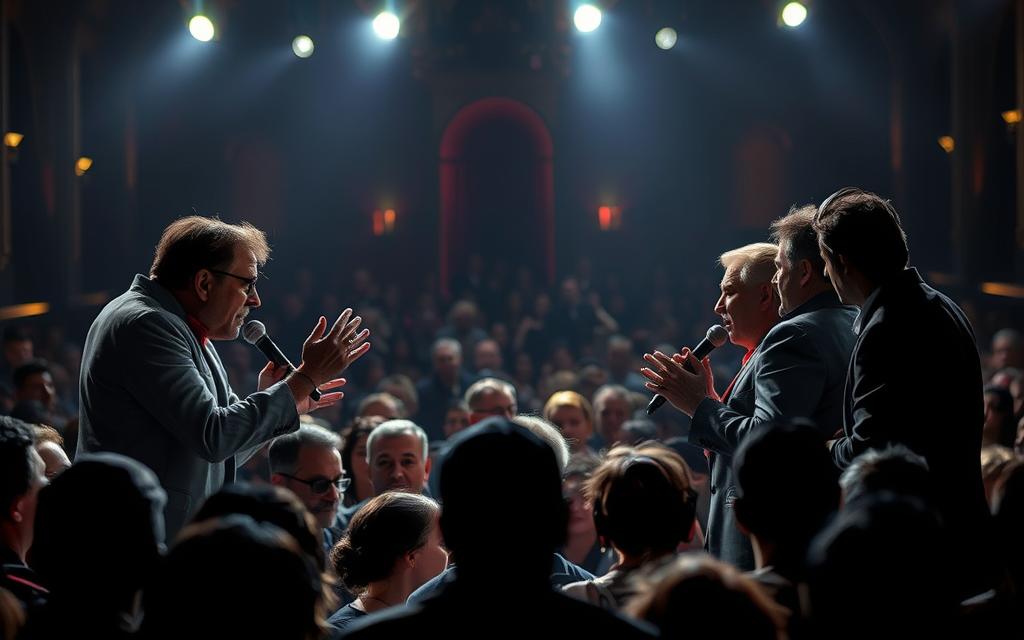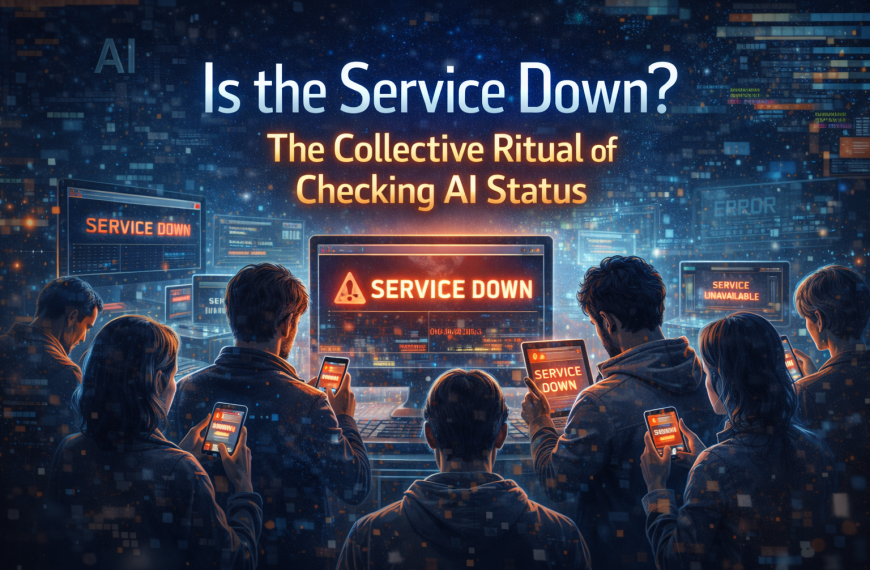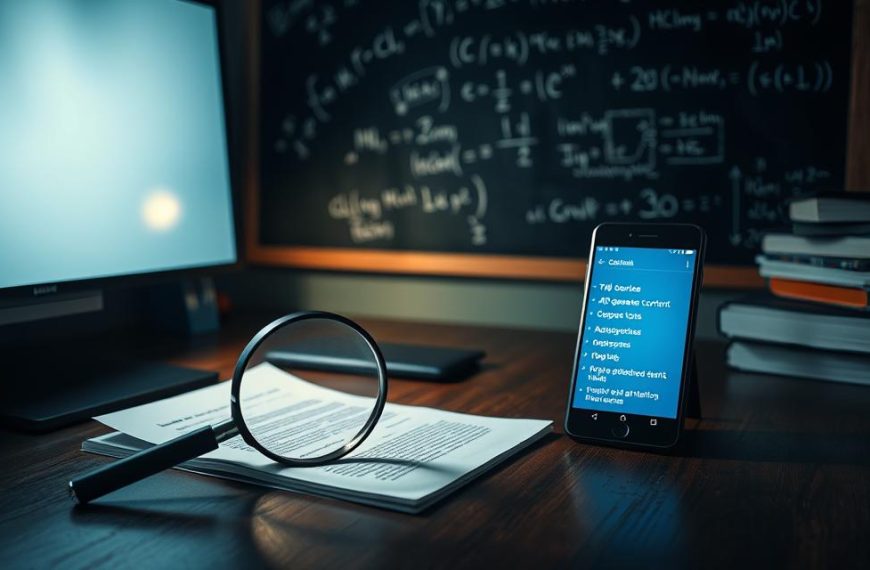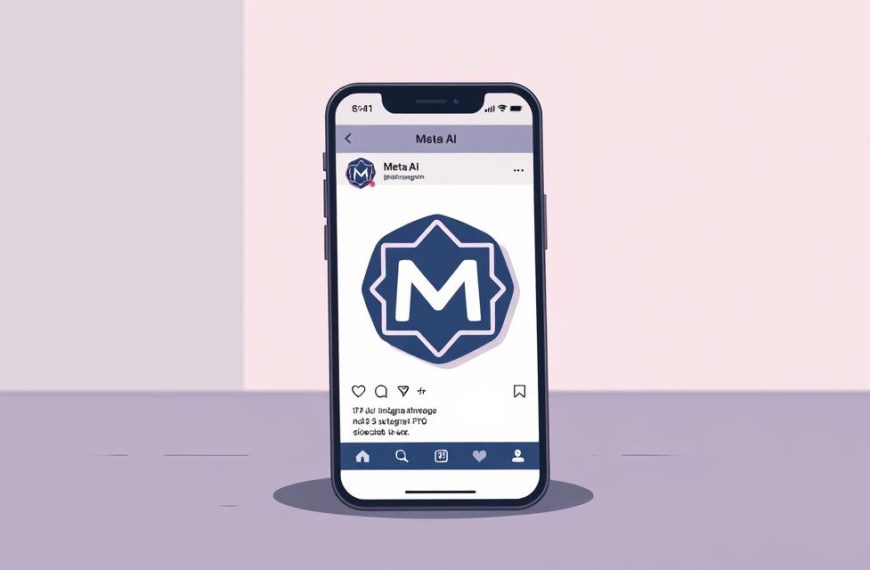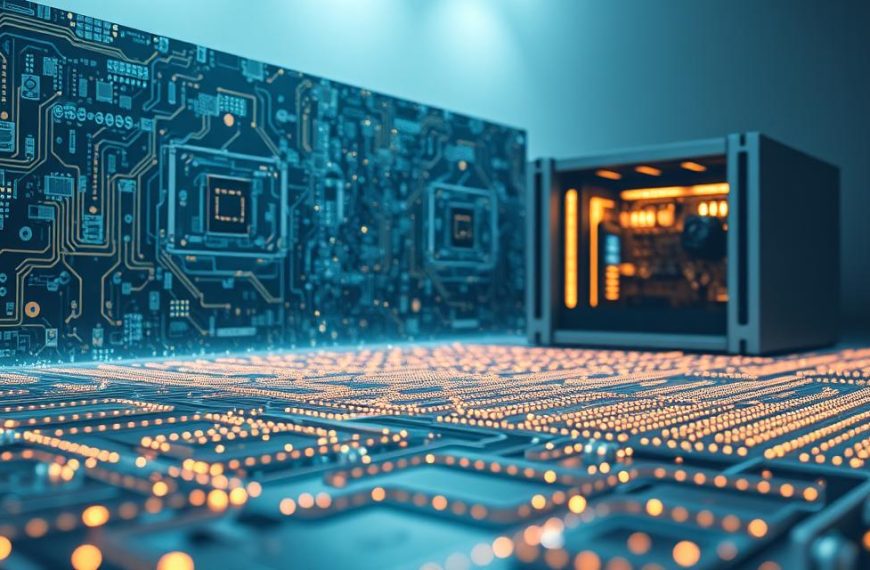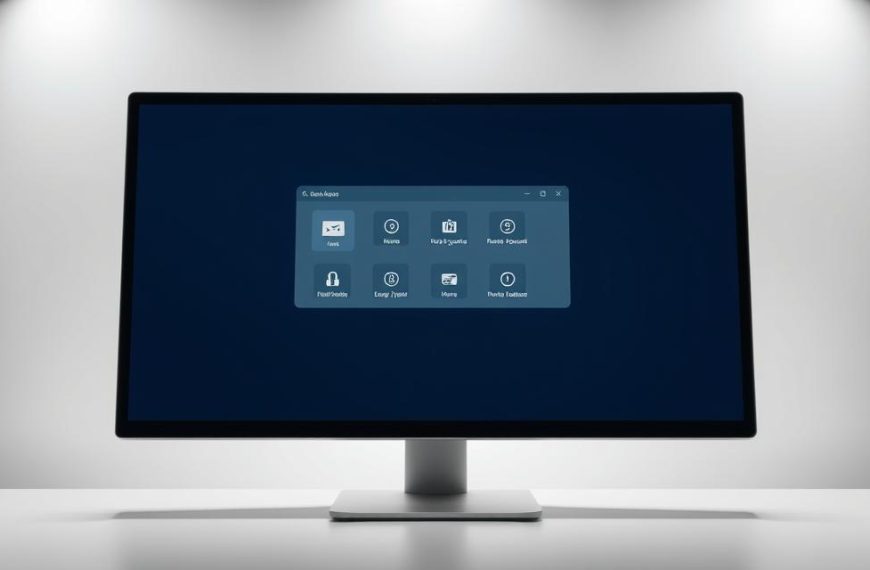The release of Playboi Carti’s third studio album, MUSIC, in March sparked a significant controversy among fans and music critics alike. The debate centres around the potential use of artificial intelligence in vocal production, particularly on the track “Rather Lie” featuring The Weeknd.
The authenticity of the album has been called into question, with some listeners alleging that AI was used to mimic Playboi Carti’s voice. This has raised important questions about the role of technology in modern music production and the future of the industry.
The debate extends beyond this single track, highlighting the need for transparency and disclosure in music production. As music continues to evolve, understanding the implications of AI on artistic integrity is crucial.
What Is “Rather Lie” and the AI Controversy
“Rather Lie”, a collaborative effort between Playboi Carti and The Weeknd, has become the focal point of a controversy surrounding AI-generated vocals. The song is part of Playboi Carti’s latest album, which has been the subject of much speculation among fans and music enthusiasts.
The Song “Rather Lie” by Playboi Carti and The Weeknd
“Rather Lie” is a standout track from the album, featuring a unique blend of Playboi Carti’s signature style and The Weeknd’s soulful vocals. The song has garnered significant attention not only for its catchy melody but also due to the controversy surrounding its production. Fans have been debating the authenticity of the vocals, with some speculating that AI technology may have been used to create or alter the vocal performances.
- The track “Rather Lie” has been praised for its innovative production and the chemistry between Playboi Carti and The Weeknd.
- Despite the positive reception, the song has also faced scrutiny over allegations of AI-generated vocals.
The Emergence of AI Vocal Allegations
The controversy surrounding “Rather Lie” began when fans noticed that the vocal characteristics on the track sounded different from Playboi Carti’s typical delivery and style. Some listeners claimed that both Carti’s vocals and The Weeknd’s contributions appeared to have been created or significantly altered using artificial intelligence technology. The debate has divided fans, with some expressing disappointment at the potential use of AI, while others have dismissed the controversy entirely.
The allegations gained traction due to the noticeable difference in vocal style, raising questions about the production methods used for “Rather Lie” and another track titled “FINE “. The speculation has sparked a broader discussion about the use of AI in music production and its implications for the industry.
Exploring the “Is Rather Lie AI” Debate
As the controversy surrounding “Rather Lie” by Playboi Carti and The Weeknd continues, fans are left questioning the role of AI in its production. The debate highlights the challenges in distinguishing between human performance enhanced by production techniques and artificially generated content.
Fan Reactions and Online Discussions
Fan reactions to the “Is Rather Lie AI” debate have been varied, with some defending the authenticity of the track’s vocals, while others speculate about the potential use of AI technology. Online discussions have been fueled by the difficulty in identifying AI-generated content, given the advanced tools available in modern music production.
The complexity of modern vocal processing techniques makes it challenging to determine whether the voice on “Rather Lie” is entirely human or enhanced by AI. This ambiguity has sparked a broader conversation about the role of technology in music creation and its impact on artistry.
Technical Analysis of the Vocal Production
A technical analysis of “Rather Lie” reveals that the track’s vocal production is heavily reliant on digital processing techniques, making it difficult to ascertain the extent of AI involvement. Playboi Carti‘s characteristic style, which often incorporates heavy vocal effects and pitch manipulation, further complicates the analysis.
| Aspect | Human Production | AI-Enhanced Production |
|---|---|---|
| Vocal Effects | Heavy use of reverb and delay | Potential use of AI-generated effects |
| Pitch Manipulation | Manual tuning and pitch correction | AI-assisted pitch manipulation |
| Overall Sound | Characteristic chaotic delivery | Seamless integration of AI elements |
The table highlights the similarities between human production techniques and AI-enhanced production methods, demonstrating why distinguishing between the two is increasingly challenging. As AI technology continues to evolve, the music industry will need to adapt to the changing landscape of music creation and record production.
The Artists Behind “Rather Lie”
In ‘Rather Lie,’ Playboi Carti and The Weeknd blend their talents to create a captivating musical experience. This collaboration brings together two distinct styles, resulting in a unique sound that has garnered significant attention in the music industry.
Playboi Carti’s Musical Style and Career
Playboi Carti is known for his experimental approach to music, often incorporating abstract vocal techniques into his songs. In ‘Rather Lie,’ he “calms things down” initially but later switches it up by “manipulating his voice” and giving insight into his love life. This approach highlights the “ups and downs of intimacy” and showcases Carti’s ability to convey complex emotions through his music.
Carti’s contribution to the track is characterized by his mumbling of “sweet nothings,” adding a layer of intimacy to the song. His style has been praised for its originality and ability to push boundaries in contemporary hip-hop.
The Weeknd’s Contribution to the Track
The Weeknd’s vocals on ‘Rather Lie’ provide a “dose of pop clarity” amidst Carti’s more experimental approach. His chorus is described as “breezy” and having an “earworm”-like hook, making it a standout element of the track. The Weeknd’s contribution helps frame the song as a contemplation on relationships, maintaining a composed emotional tone.
The collaboration between The Weeknd and Playboi Carti continues their successful partnership, following previous joint efforts on tracks like “Popular” (2023) and “Timeless” (2024). Their complementary styles have been well-received by critics, with some even calling for a full joint album.
| Artist | Contribution | Style |
|---|---|---|
| Playboi Carti | Main vocals, experimental approach | Abstract, emotive |
| The Weeknd | Chorus, pop clarity | Breezy, melodic |
AI in Music Production: Broader Implications
The music industry is at a crossroads with the advent of AI in music creation. As AI technologies become more sophisticated, they are increasingly being used in various aspects of music production, from composition to vocal processing. This shift has significant implications for the industry, affecting artists, producers, and consumers alike.
Current AI Technologies in Music Creation
AI is currently being used in music creation to generate beats, melodies, and even entire tracks. AI tools can be trained on vast datasets of existing music, allowing them to learn patterns and styles that can be used to create new content. Platforms like Amper Music and AIVA are at the forefront of this technology, offering AI-powered music composition services that can be used by musicians and producers to enhance their creative workflow.
These technologies are not only changing how music is produced but also raising questions about the role of human creativity in the process. While some see AI as a valuable tool that can aid artists in their work, others fear that it could replace human musicians and composers.
Ethical Considerations and Industry Response
The use of AI in music production has sparked a heated debate about authenticity and credits in the industry. Many artists and industry professionals are concerned that the use of AI-generated content could lead to a lack of transparency and fairness in how credits are attributed. There are calls for mandatory labeling of AI-generated content on streaming platforms like Spotify and Apple Music to ensure that listeners are aware of when AI has been used in the creation of a track.
The industry is also grappling with the ethical implications of AI-generated music, particularly in terms of copyright and compensation. The recent protest album “Is This What We Want?” by over 1,000 musicians highlights the growing concern about the potential for AI to undermine the value of human musicianship and the need for legal frameworks that protect artists’ rights.
Conclusion: The Future of Authenticity in Music
The use of AI in music production, as allegedly seen in “Rather Lie,” raises important questions about authenticity and creative ownership. As the music industry continues to evolve, it is crucial to consider the implications of AI-generated vocals and the potential impact on artists and the industry as a whole.
The “is rather lie ai” controversy surrounding Playboi Carti’s song has sparked a broader conversation about the role of technology in music production. While some may view AI as a threat to human artistry, others see it as an opportunity for innovation and creativity. As AI tools become more sophisticated, it is essential for artists, labels, and platforms to establish clear standards for disclosure, credits, and compensation.
The future of music production will likely be defined by a thoughtful integration of human creativity and AI technology. For Playboi Carti’s album “MUSIC,” the rumors surrounding “Rather Lie” may have little impact on its commercial success, but the controversy has sparked an important conversation about transparency in production methods. As the industry moves forward, it is crucial to prioritize authenticity and ensure that the use of AI in music production is done in a way that respects both technological innovation and human creativity.
In conclusion, the “rather lie” controversy highlights the need for ongoing discussions about the role of AI in music production and its potential impact on the industry. By prioritizing transparency and authenticity, we can ensure that the future of music is shaped by a thoughtful integration of human creativity and technological innovation.
FAQ
What is the controversy surrounding "Rather Lie" by Playboi Carti?
The controversy surrounding “Rather Lie” stems from allegations that the track’s vocal production utilised AI technology, sparking debate among fans and music industry professionals about the authenticity and role of AI in music creation.
How has the music industry responded to the use of AI in music production?
The music industry’s response to AI in music production has been varied, with some artists embracing the technology as a tool to enhance their creativity, while others have raised concerns about the potential threat to human artistry and the need for transparency regarding AI-generated content.
What are the implications of using AI-generated vocals in popular music?
The use of AI-generated vocals in popular music raises questions about authorship, authenticity, and the value of human creativity, with some arguing that it undermines the artistic process, while others see it as a means to push the boundaries of musical expression.
Can AI technology accurately replicate the vocals of popular artists like The Weeknd?
While AI technology has advanced significantly in recent years, replicating the unique vocal characteristics and emotional expression of artists like The Weeknd remains a challenging task, with some arguing that the results can sound unnatural or lack the nuance of human performance.
How do fans and listeners feel about the use of AI in music production?
Fan reactions to AI in music production are diverse, ranging from enthusiasm for the innovative possibilities it offers to concerns about the potential erosion of artistic authenticity and the devaluation of human creative input.
What role do platforms like music streaming services play in the debate around AI-generated music?
Platforms like music streaming services play a significant role in the debate around AI-generated music, as they provide the primary means of distribution and consumption for music created using AI technologies, and must navigate the complexities of labelling and promoting AI-generated content.

